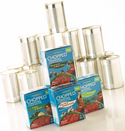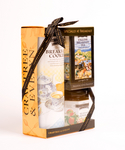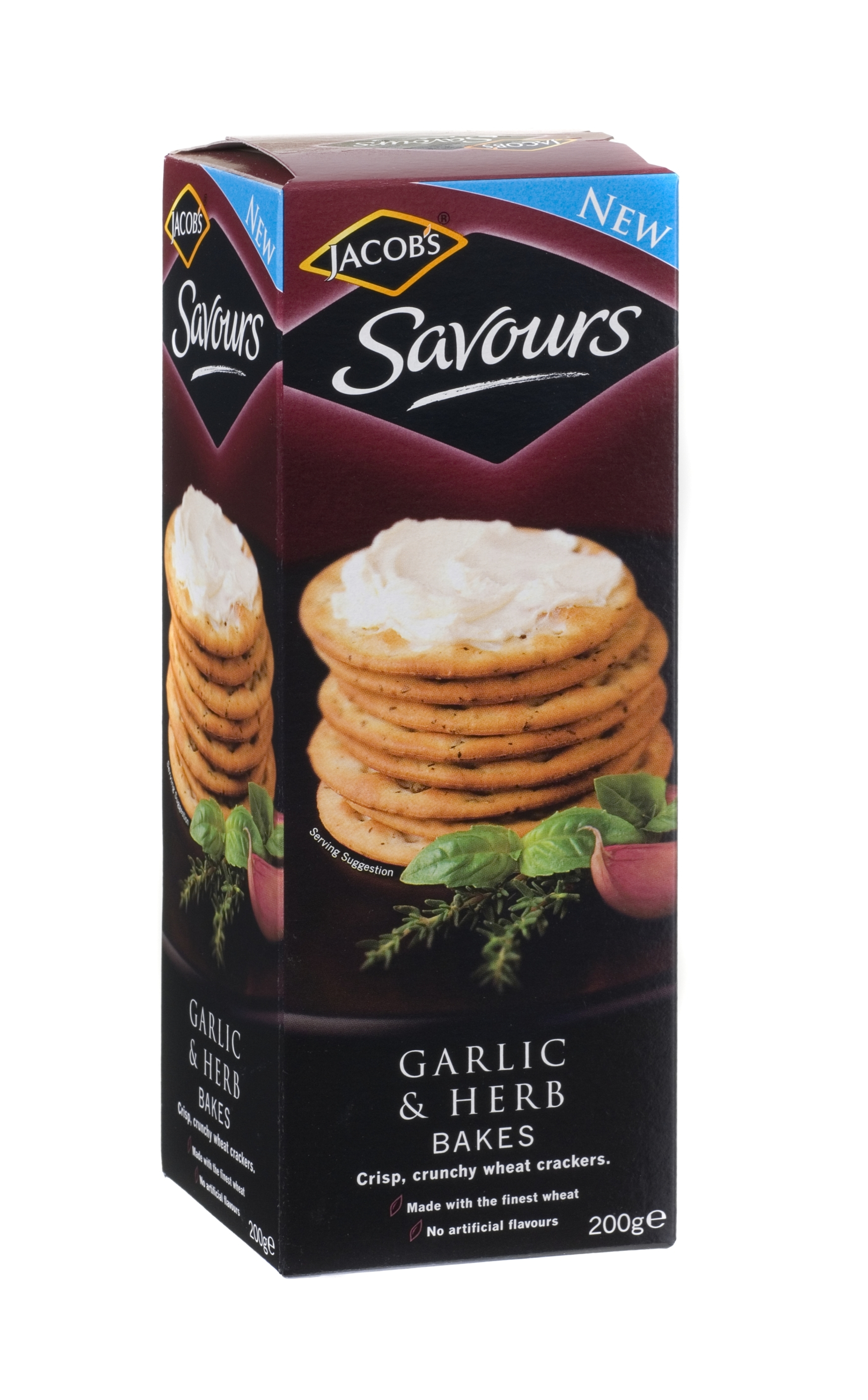Sustaining the potential
31 August 2007Cartons have great potential, but manufacturers must follow the “green” route if they are to win over even more converts as Robin Meade reports
Innovation and function are the buzz words in the carton and cartoning business; providing a product that brand owners and retailers want – and will pay for – and one that fills a need as yet unfilled. Two other words, however, remain just as powerful – sustainability and recycling.
In the beverage and food sector, the drive remains to be more environmentally benign through recycling and providing compostable and biodegradable packaging from sustainable sources.
However, there is also a continuing demand for eye-catching and functional cartons that convey the marketing message and draw in the consumer.
The chief executives of the world’s three leading beverage carton manufacturers signed a unilateral commitment in July to ensure all wood fibres can be traced back to legal sources in the forest of origin. The industry uses about 2m tonnes of paperboard annually and 80% of beverage cartons sold worldwide are produced by the three signatories; Tetra Pak, SIG Combibloc and Norwegian corporation Elopak.
However, the average beverage carton is made of only 75% paperboard. This is often laminated with polyethylene on both sides to make it waterproof and stiffer, and cartons intended for longer shelf life also have a layer of aluminium. ACE, the alliance of beverage cartons and environment, estimates the average carton includes 21% polymers and 4% aluminium
.Tetra Pak last year rolled out Tetra Wide for all ambient and roll-fed chilled liquid product packages in which the inner layer is 30% thinner and requires fewer polymers to produce, but is stronger. A spokesperson says it is now used in 84% of all cartons produced in the UK and 97% of all materials exported to other countries. Tetra Pak says this has reduced its consumption of polymers by about 2,500 shipping containers a year.
One of SIG Combibloc’s latest products is made up of paperboard, polypropylene and aluminium for recycling after use. Combisafe was trialled in Germany last year and attracted it’s first Italian customer in May. A spokesperson says the company is currently talking to several possible UK customers and hopes to have its first UK user soon.
The carton is a new pack for chunky products that allows foods to be sterilised in an autoclave and can therefore be a substitute for cans and bottles. The process allows products such as fruit, vegetables and sauces to be stored for up to two years without loss of quality or the use of refrigeration or preservatives.
Each layer of the carton functions to protect the product during the heat treatment. The inner polypropylene layer is the liquid barrier, while the outer polypropylene layer protects it from external contamination and ensures that the composite material can withstand the high temperature and moisture during autoclaving.
The printed and coated sleeves for Combisafe have a complete top perforation and are sealed longitudinally before being stacked on pallets for delivery to the filling company using SIG Combibloc machines. The line is modular, allowing manufacturers to run up to four lanes of the filling machine which can reach speeds of 12,000 packs/hr. Up to 2,160 cartons packs with a volume of 400ml can be stacked on one Euro pallet.
Elopak has innovative ranges of its own, including its leading Pure-Pak carton, which most recently had a curved carton added to the range, in which a curve is moulded into one edge to help it stand out on the shelves. This is used in the Mini Diamond carton for thicker and richer drinks. The Pure-Pak is available in standard polyethylene board, an aluboard for aseptic products and an EVOH-barrier board where its is necessary to block oxygen from the product, but not light.
New Elopak chief executive Niels Petter Wright says innovation will be key now that the company has abandoned plans to create a larger player by acquiring SIG. “With such a dominant player as Tetra Pak as our competitor there is little mileage in competing on price for standard products in the aseptic product area”, he says. Elopak has chosen to focus on the premium segment, with design-protected cartons that help to differentiate the product they contain. Packaging should play a role in positioning quality products, both by enhancing user-friendliness and by design qualities that attract the consumer’s attention in the chiller cabinet.”
The carton industry is also turning to bioplastic materials. Polylactic acid (PLA), the corn starch-based plastic has previously been used in trays and for closures, but efforts to use PLA resin more widely have been hampered because it is weaker and more brittle than traditional materials. Attempts to strengthen PLA-based packaging have sacrificed transparency, but manufacturer Rohm and Haas says a new additive uses dispersible nanoparticles that do not scatter light, creating less than 10% haze.
PLA is now being sourced for applications such as shrink sleeves and cartons and US-based Milliken & Company is making available an option to have a PLA coating to strengthen its two new paper-based tetrahedral packaging products for the convenience market. It says the Nu-Twist and M-Pak Plus cartons minimise waste because the package shape is the most efficient use of material per unit of volume and allows for complete dispensing of the product.
A huge recycled cartonboard business is about to be created by the merger between Reno De Medici and Cascades, creating one of the major players in the recycled cartonboard world market with a combined annual capacity of more than 1m tonnes. Under the share deal expected to be completed by the end of the year, Cascades mills in France and Germany, and the sheeting plant in Wednesbury in the UK would be merged into Reno De Medici.
Expanding, too, in the cartoning sector is the Bradman Lake Group, which has opened a new product development and manufacturing centre in Norwich that became fully operational in August. The site is three times the size of its former premises nearby and features 50,000ft2 of manufacturing space and 10,000ft2 for administration.
Group marketing director Denis Juenger says the new centre will be the hub for product development and engineering for manufacturing in the UK, Germany and the US, linked with centres in China and Russia. He says: “We had a fantastic Total show and we feel with our new products we are on the brink of carving out for ourselves to be in the top two in the UK and top three in Europe.”
Juenger says the company’s new ICS (Integrated Cartoning System) launched in Europe in May is a product of the new development strategy. ICS is a modular system to form, fill and close on one machine, providing a much smaller footprint. It is aimed particularly at small and medium size producers.
The system, which includes lightweight carbon fibre lock tools, adjustable glue tools and powered carton hopper, is capable of forming cartons from flat blanks either with or without hinged lids, lock style or four corner glue cartons. It can also open pre-glued cartons. The loading module is available in single, double or triple track formats with each track capable of handling up to 300 packs/min.
A new addition to Romaco’s Promatic PC4000 cartoning range – a range designed for the exacting requirements of the pharmaceutical and cosmetics sectors – is the 420/min PC4400 horizontal cartoner. It features servo-drive technology with logic control, which the company says reduces the risk of breakdown and minimises maintenance requirements, delivers easy programmable changeover with micrometric adjustments and is virtually silent in operation. Tailor-made feeding systems are available for products such as blisters, bottles, tubes, jars, sachets and vials.
Romaco says fast product changeover is assured by digital position indicators, repeatability of settings, the machine’s capability to store format parameters and its ergonomic magazines, which facilitate longer running times without operator intervention.
In the corrugated sector, sustainability and recycling has also been a key issue and Clifford Packaging believes it has found a solution for supermarkets with its wine carrier that began to appear on supermarket shelves last month. It serves both retailer and customer in that it is a shelf-ready transit box that doubles as a carry out for consumers.
Rowan Tin, innovation development manager for consumer products, says the box was developed over two years after the company was approached by a major retailer that wanted easier in-store handling and to reduce its recycling. “The boxes are taken to the shelf, the tops are ripped off, which was a requirement that it needed no cutting, a handle is revealed and this is used to lift it onto the shelf. The consumer can then buy a bottle or take away six in a carry out wine box,” he says. The key is in the perforations along the top of the box and gaining the confidence of supermarkets that the integrity is sufficient for transit, handling and for customers. Clifford uses Speedy Tear perforation technology.
“Trials were successful, it was found fit for purpose and now we are doing a full production run in conjunction with a brand in South Africa for a UK supermarket. I have shown it to three out of four major supermarkets and two are running with
it. At the moment they will use the box to decant onto the shelves, but as it becomes for prevalent, I can see whole displays of different brands.”
The folding cartons sector is for the first time in years at near balance between supply and demand, and the expectation is that the trend will continue. Converters, though, say they remain committed to environmental solutions and innovation. The industry group BPIF Cartons and suppliers KBA, Sun Chemical, Kodak, Bobst, Robert Horne and Merck recently held an innovations workshop to demonstrate new products and effects.
BPIF director Mike Hopkins says: “The carton industry is the healthiest it has been for several years. Supply and demand has reached balance and some converters have been able to say ‘no’ to their customers. But there is still the need to look to the product and to providing something that will make the customer want to pay more for it. Coming up with something completely new is difficult, but innovation is the lifeblood of the industry.”
John Monks, president of BPIF Cartons, says pressures on prices have been resisted and during one seasonal peak last year work was turned away. “I think it was a salutary lesson to the end user. There has been some migration of manufacturing to other parts of Europe and the packaging has followed it, and a number of businesses have relocated to be with that.
“Carton makers here, now, have a lot more confidence to resist price pressures and at the same time there is more confidence to create relationships, which will be good for the end user, if they are prepared to play their part.”
Boxes Prestige, which specialises in luxury packaging, has created a range of cartons for Crabtree & Evelyn’s Fine Foods Range produced on Korsnäs Frövi white cartonboard in 390gsm with around the corner PET windows. The stylish design has a premium finish on both the inside and outside of the packaging.
Boxes business manager Ray Grundy says: “Our brief was to design packs that sell the product and this involved the use of large areas of windowing in all the range. Korsnäs board gave us the opportunity to give the consumer a fine view of the products whilst maintaining the integrity of the packs throughout the supply chain.”
Meanwhile sister-company, Boxes GH, has produced cartons for United Biscuits (UB) new range of seasoned crackers, Jacob’s Savours. The cartons have been printed in six colours with a gloss varnish and four designs correspond to each of the flavours in the range.
Boxes GH has worked with UB for a number of years and Anna Ward, brand manager, Jacobs Crackers, said: “Our long standing relationship with Boxes GH means they knew exactly what we wanted to achieve from the cartons. The packaging they have created means we can perfectly position the Jacob’s Savours range within the market, as well as reflecting the wider Jacob’s brand.”
Both part of the Clondalkin Specialist Packaging Division, the companies have also demonstrated their “green credentials” by receiving accreditation from two organisations – Boxes GH, Boxes Prestige and Boxes Prestige Poland are now accredited to the Forestry Stewardship Council (FSC) and the Programme for the Endorsement of Forest Certification (PEFC).
French catering company Saveurs d’événements, which specialises in meetings, seminars and training days, commissioned a pack that once people have finished eating and want to continue working at the table, the tray is slid into the cover from which it came. Previously corrugated board was used, but now to improve the printed result the latest Korsnäs Frövi White has been specified.
Edelmann has developed a high quality confectionery gift packaging for Schwermer with a glossy gold foil stamping. The eight-colour job with Cegloss in gold foil stamping has an attractive stripe design and ribbon attached.
These types of carton demonstrate the need to create something special. Research has shown that in the supermarket colour attracts first at a distance of ten metres, followed by shape at four metres and brand at one metre.
Varnishing, metallic finishes, foils, PET windows, cheap security measures, such as readable and non-readable inks, environmentally friendly plastic substrates, vegetable-based inks are being developed and honed by suppliers and carton manufacturers. New software allows cartons to be printed in fewer colours with all the choice of the Pantone colour range. New finishing equipment is providing scope for more complex shapes and folding, cutting, creasing and perforating techniques.
Contact details
CONTACTS
Boxes GH
T: 01254 888151 www.boxesgh.co.uk
Boxes Prestige
T: +44 (0)1604 811971 www.boxesprestige.co.uk
BPIF Cartons
Tel: +44 (0)1924 203331 www.britishprint.com
Bradman Lake Group
T: +44 (0)1603 441000 www.bradmanlake.co.uk
Cascades
T: +33 1 46 35 12 20 wwwcascades-europe.com
Clifford Packaging
T: 44 (0)1282 458550 www.cliffordpackaging.com
Edelmann
T: +49 7321 340278 www.edelmann.de
Elopak
T: +47 31 27 10 00 www.elopak.com
Korsnäs
T: +44 (0)1923 43 32 96 www.segezha-packaging.com
Milliken & Company
T: +1 919 545-9050 www.milliken.com
Romaco
T: +44 (0)1480 435050 www.romaco.com
SIG Combibloc
T: +44 (0)191 385 3131 www.sig.biz
Tetra Pak
T: +44 (0)870 442 6600 www.tetrapak.com







